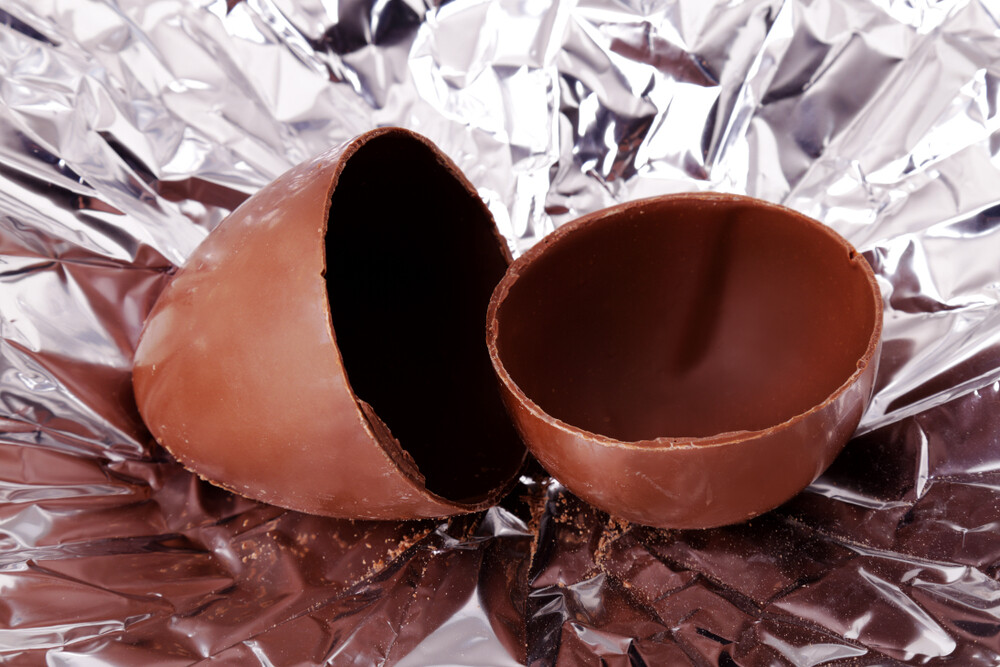Different countries, different customs. We know that. But why our favourite delicacies are even banned or classified as dangerous in some parts of the world, we explain here.
1. Surprise egg
Is there anything felt more innocent than the well-known surprise egg? It has been conjuring a smile on children’s faces for decades and even as an adult you have to smile with surprise when you remember the delicious chocolate eggs – at least here in Germany. In the USA you will look in vain for the popular nibbling. There it is forbidden because of the danger of swallowing small parts. Anyone entering the USA and carrying an ovipositor egg with them even has to pay a fine – so it’s better not to risk it.
2. M&m’s
In Sweden you will not (any longer) find the popular peanut in a chocolate coat. As the Swedish company Marabou has won a lawsuit against the “m&m” manufacturer Mars, the delicacy will no longer be available in Swedish supermarkets since 2016.
The reason: the two products were too similar. But since Marabou has been selling its cult chocolate peanuts since 1957, Mars had to take a beating. Only if Mars changed the “m&m” logo to a capital “M” would he be allowed to continue selling the sweet in Sweden. However, he was not prepared to do so.
3. Foie gras
In France, “foie gras” is a speciality. For this culinary delight, geese are forcibly fattened and stuffed until they get a fatty liver. This is cruelty to animals! Who now also pulls a disgusted face is not alone. India has banned the import as well as the consumption of the speciality, because the preparation is considered cruel there. We agree and say: a clear “mais non!” to “foie gras”.
4. Ketchup
Everyone knows by now that ketchup is full of sugar. This is also the reason why the popular dip is officially banned in French schools. The sugar bomb would only spoil good French food (we are not thinking of “foie gras”).
But there are still exceptions. Once a week, the red devil is allowed on the canteen plate – but only in combination with French fries. Well then.
5. Goodbye chewing gum
We cannot imagine life without the chewing fun for in between times. In Singapore, however, chewing gum is prohibited. Only pharmacies offer the product, but only with a certificate for therapeutic purposes. Good to know: Even therapeutic chewing gum is not allowed to be spat on the street in Singapore – otherwise you could face a heavy fine. We are not surprised that Singapore is considered the cleanest country in the world.
6. Raw milk
In Germany the raw milk can be purchased directly from the farmer. In Scotland, Australia, Canada and a large part of the USA, however, the sale is prohibited. The ban even goes so far that in Canada, for example, cheese such as camembert or parmesan cheese may not be sold. But what is the reason why the tasty cheeses are not served there? The authorities fear potential pathogens in raw milk products.
7. The British friend: Marmite
For all those who have not yet made the acquaintance of the vegetarian spice paste from Great Britain, here is a short explanation: Marmite is a very popular spread among our British friends, but it tastes very…special. Especially for unusual taste buds this spicy all-rounder is a challenge. Even the manufacturer advertises the product under the slogan “Love it or hate it”.
In Denmark, however, the product is prohibited. Whether it is due to the taste that takes getting used to remains a hypothesis. But the fact is that our Scandinavian neighbour has been banning vitamin-enriched foods since 2004.
8. Getting high naturally with poppy seeds?
What’s better than a delicious, freshly baked roll from the baker with poppy seeds on it? We love our bread culture and every Sunday we look forward to the delicacies from our trusted baker. In Singapore, Taiwan, Saudi Arabia and the United Arab Emirates, the opiates contained in poppy seeds are considered a drug.
…we think it’s a pity and are curious to see if we get high the next time we bite into a poppy seed roll.
9. Norwegian salmon
Norwegian salmon has been strictly prohibited in Russia since 2005. The reason: salmon from Norwegian salmon farms have an increased content of heavy metals. So high that the lead concentration is 10 to 18 times higher than Russian health standards allow.
10. Hawaiian papaya
Bright yellow skin and juicy flesh: this is what a papaya looks like in Hawaii. Sounds super exotic and delicious? However, the so-called “miracle fruit” is genetically manipulated to protect it from viruses and is therefore strictly forbidden throughout the EU.
By the way: Papaya is also called “miracle fruit” because it contains an extremely high content of vitamins and enzymes, such as the well-known papain – a natural anti-inflammatory.

